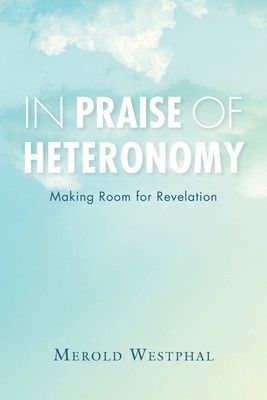
- We will send in 10–14 business days.
- Author: Merold Westphal
- Publisher: Indiana University Press
- ISBN-10: 0253026520
- ISBN-13: 9780253026521
- Format: 15.2 x 22.6 x 2 cm, minkšti viršeliai
- Language: English
- SAVE -10% with code: EXTRA
Reviews
Description
Recognizing the essential heteronomy of postmodern philosophy of religion, Merold Westphal argues against the assumption that human reason is universal, neutral, and devoid of presupposition. Instead, Westphal contends that any philosophy is a matter of faith and the philosophical encounter with theology arises from the very act of thinking. Relying on the work of Spinoza, Kant, and Hegel, Westphal discovers that their theologies render them mutually incompatible and their claims to be the voice of autonomous and universal reason look dubious. Westphal grapples with this plural nature of human thought in the philosophy of religion and he forwards the idea that any appeal to the divine must rest on a historical and phenomenological analysis.
EXTRA 10 % discount with code: EXTRA
The promotion ends in 21d.08:46:24
The discount code is valid when purchasing from 10 €. Discounts do not stack.
- Author: Merold Westphal
- Publisher: Indiana University Press
- ISBN-10: 0253026520
- ISBN-13: 9780253026521
- Format: 15.2 x 22.6 x 2 cm, minkšti viršeliai
- Language: English English
Recognizing the essential heteronomy of postmodern philosophy of religion, Merold Westphal argues against the assumption that human reason is universal, neutral, and devoid of presupposition. Instead, Westphal contends that any philosophy is a matter of faith and the philosophical encounter with theology arises from the very act of thinking. Relying on the work of Spinoza, Kant, and Hegel, Westphal discovers that their theologies render them mutually incompatible and their claims to be the voice of autonomous and universal reason look dubious. Westphal grapples with this plural nature of human thought in the philosophy of religion and he forwards the idea that any appeal to the divine must rest on a historical and phenomenological analysis.


Reviews